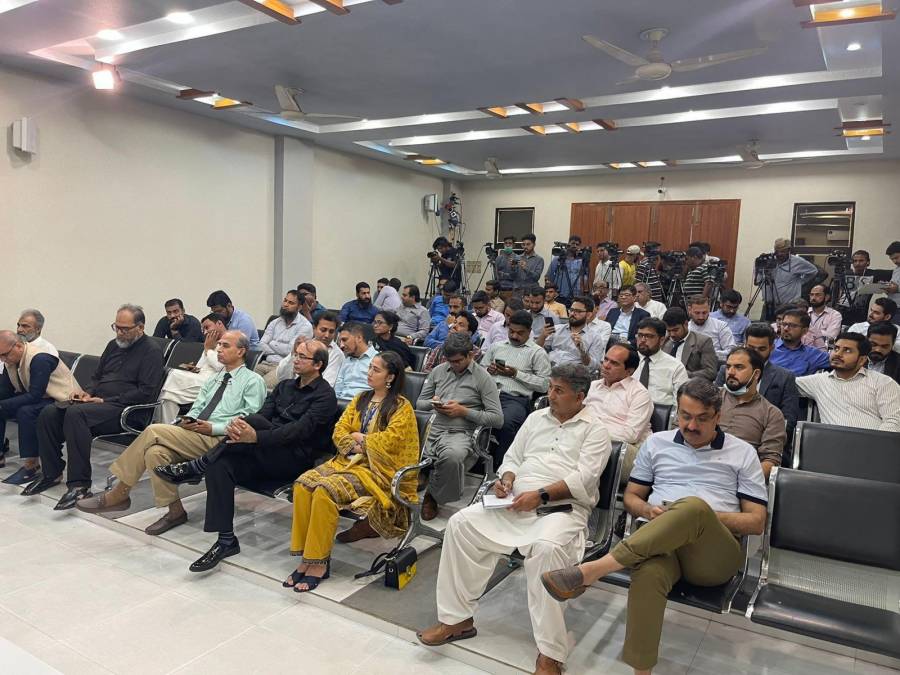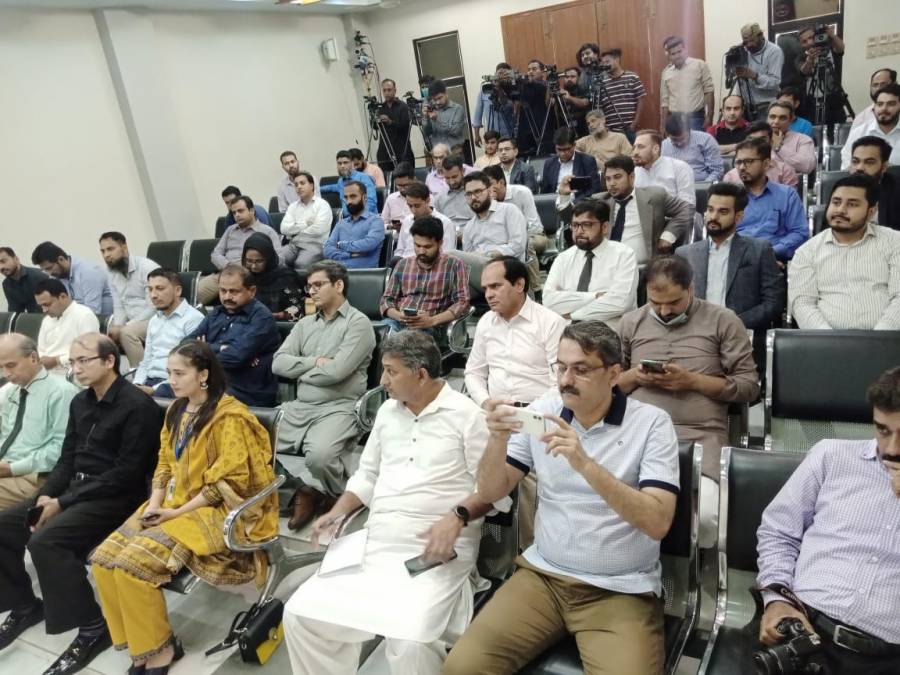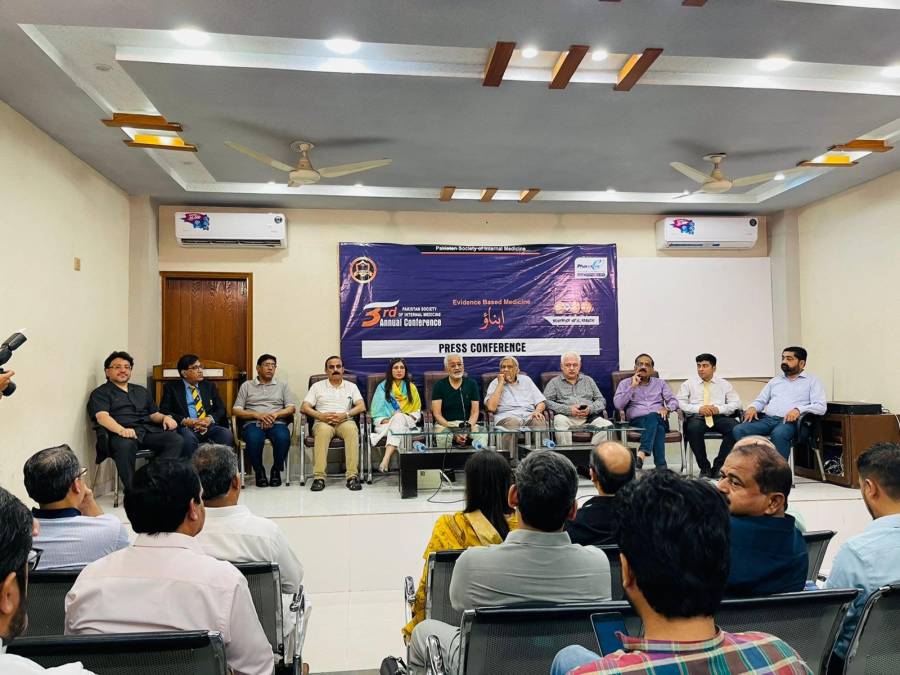Self prescription widely prevalent in Pakistan
KARACHI: About 25 per cent of patients in Pakistan prescribe medicines for themselves and buy these medicines directly from medical stores. The use of antibiotics without a proper prescription is increasing so, in most diseases, Medications are beginning to prove ineffective.
Karachi Press Club
These views were expressed by Prof. Dr Javed Akram, Vice-Chancellor, University of Health Sciences, Lahore, and President, Pakistan Society of Internal Medicine, while addressing a press conference at Karachi Press Club.
Prof. Dr Soumia Iqtadar, General Secretary, Pakistan Society of Internal Medicine, Prof. Aftab Mohsin, Prof. Dr Zaman Sheikh, Prof. Dr Issa Muhammad, Dr Farhan Issa, Prof. Dr Aziz-ur-Rehman and other health professionals were also present on occasion.
 Dr Farhan Issa, Prof. Aftab Mohsin, Prof. Dr Zaman Sheikh and other experts were present on occasion.
Dr Farhan Issa, Prof. Aftab Mohsin, Prof. Dr Zaman Sheikh and other experts were present on occasion.
Self Prescription prevalence in Pakistan
The prevalence of self prescription in Pakistan is increasing day by day, and it should be controlled. Prof. Javed Akram said that the third conference of the Pakistan Society of Internal Medicine is starting in Karachi from tomorrow. There will be 92 scientific sessions in which doctors will be encouraged to use scientifically proven medicines.
 During Conference at Karachi Press Club
During Conference at Karachi Press Club
Blood Pressure and Diabetes
Professor Javed Akram further said that infectious and non-infectious diseases are on the rise in Pakistan; every second adult in Pakistan suffers from high blood pressure, and about 25% of Pakistan's population suffers from diabetes. Until these patients are given medicines based on scientific research, their treatment is impossible.
 During discussion on prevalence of Self prescription in Pakistan
During discussion on prevalence of Self prescription in Pakistan
Overweight and Blood Pressure in Pakistan
He further revealed that about 42% of children in Pakistan are overweight or obese, which means that these children may also suffer from high blood pressure and diabetes in the coming years.
Diabetes
Referring to the rising rate of diabetes in children, he said that research has also shown that most children with diabetes do not need insulin by the age of ten. Such children can be kept healthy by controlling their diabetes through diet and medication, including weight loss.
He said that the Pakistan Society of Internal Medicine would launch a search engine for scientifically proven drugs during its conference, which would allow doctors to track patients' symptoms and their test results. It will be easier to prescribe the most appropriate medication.
Quran And Medical
He said that along with scientific research, doctors were also being imparted Quranic education and training in ethics to treat their patients with compassion by treating them as human beings.
Self Prescription Pakistan
Self Prescription in Pakistan is increasing, and on occasion, Prof. Dr Aftab Mohsin, Chair of the Pakistan Society of Internal Medicine, said that one billion injections are given annually in Pakistan. About 90% are given unnecessarily, and 70% of injections are given incorrectly.
He said that it was time to train doctors in Pakistan to provide scientifically proven medicines and treatments to the patients to get rid of their ailments.
Addressing the press conference, Dr Aziz-ur-Rehman, another Pakistan Society of Internal Medicine leader, said that the meeting was attended by health professionals from different cities in Pakistan, the Middle East, various European countries, and the USA. We will present our research on the use of scientifically proven drugs through our latest research.
Dr Somia Iqtadar, Secretary-General of Pakistan Society of Internal Medicine, and Prof. Zaman Sheikh also addressed the press conference.
Trending
Popular
UCFS clinical trial to test efficacy of CAR-T gene therapy against ...
-
Sindh pledges vigorous action to ...
04:26 PM, 9 Apr, 2024 -
PMA stresses health equity on World ...
04:08 PM, 9 Apr, 2024 -
Dow University’s new rabies vaccine ...
12:18 PM, 28 Mar, 2024 -
IRD role lauded in advancing ...
02:53 PM, 12 Mar, 2024








